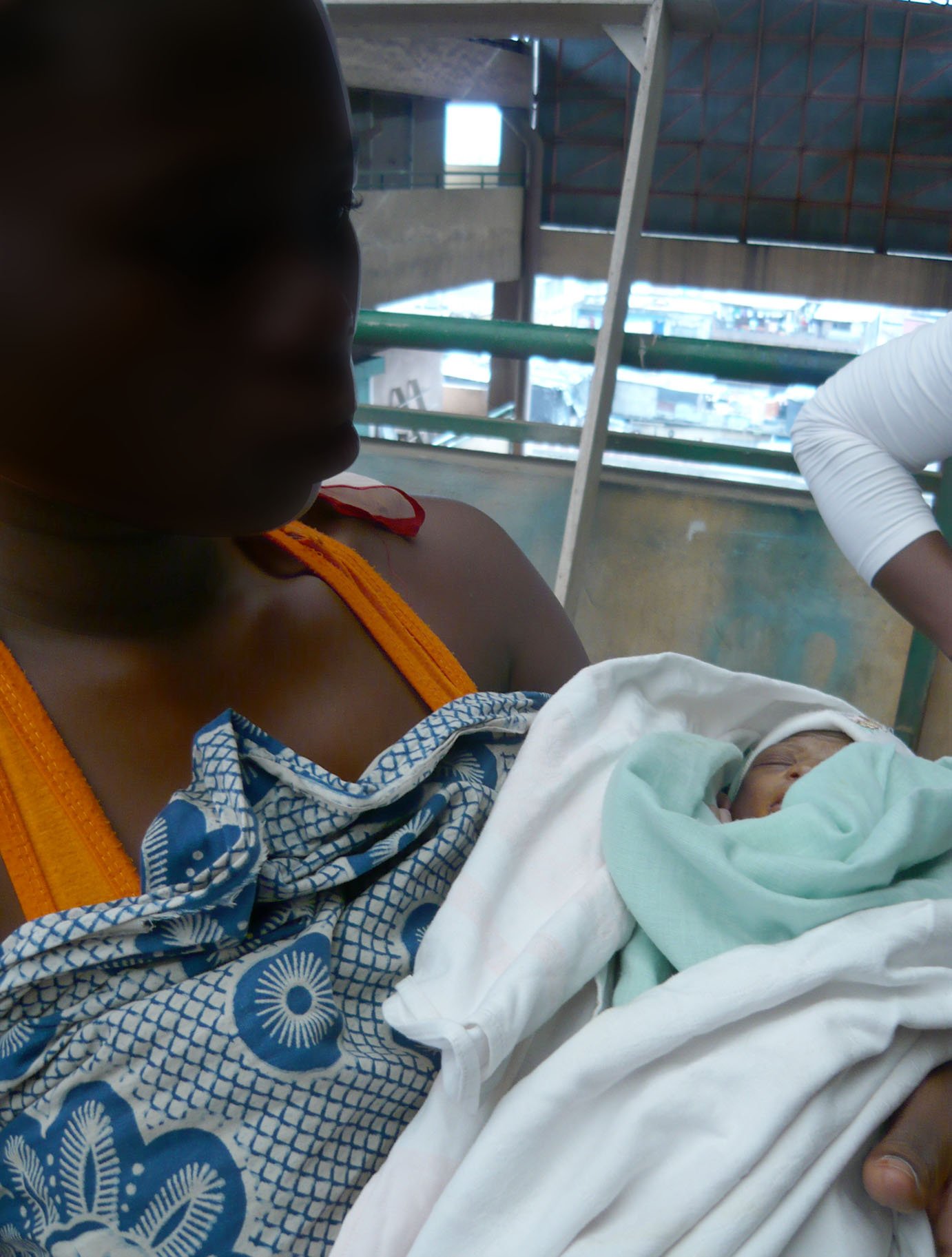Aminata is among scores of young girls – some as young as 10, according to a local NGO – who sell their bodies at Adjamé market, known locally as ‘Biêlôgô’; in the Dioula language, lôgô means market and biê means the female sex organ.
“Sometimes the bodies of babies who die in these circumstances end up in trash bins,” said Irié Bi Tra Clément, founder of the local NGO Cavoequiva, which means ‘let us unite’ in the Gouro language.
Workers with Cavoequiva, based in Abidjan’s Adjamé neighbourhood, have met with and interviewed hundreds of street children and youths. Irié told IRIN a girl recently reported a client hit her so hard when she resisted anal sex that he broke her jaw. The NGO founder said most of the girls report having to give part of their earnings to “managers”.
The afternoon of 19 June Aminata’s eight-day-old girl coughed as she lay wrapped in cloths on a concrete floor. Playing nearby were infant twins of another teenager who has sex for money.
Aminata said she and her baby got wet when rain leaked into the market stall where they slept. She started to cry talking about it.
“I am crying because I have this baby, she is sick and I have no way to do anything about it.”
Aminata is not sure for how long she has been exchanging sex for money, but she said at least four New Year’s Eves have passed since she began. She said a woman from her village in northern Côte d’Ivoire came and told her parents she would help Aminata work in petty trade in the capital.
“I came and started selling in the market, but the woman I worked for complained daily that I was not making enough money. So I started working as a porter in the market. Still, she said I was not making enough money. She mistreated me and paid me nothing for my work. That is why I left there.”
She joined other young people living in the streets. “I started exchanging sex for money because I had nothing and nowhere to go. I charged 500 or 1,000 CFA francs [US$1 to $2].”
|
Photo: Nancy Palus/IRIN  |
| Office of local NGO Cavoequiva, in Abidjan's Adjamé neighbourhood |
That was the case for Djeneba*, who said the woman she was working for told her several times to start selling her body.
“She told me to do it; I refused,” Djeneba told IRIN. “She told me again to do it; I refused. Then one night five youths raped me at knifepoint.”
Djeneba, her brown eyes framed by thick blue false eyelashes, said: “Once my wounds healed, I started.”
Why? “I had no money.”
Asked whether she wanted to continue the work Djeneba let out a guttural “Nooooo.” She said: “If I had money I would not do this.”
She and her friends said they used condoms only sometimes. In a film made by Cavoequiva, girls talk of the drugs they take before they set out to work at night.
After the 23 June death of her baby Aminata – ill since the birth – consulted a doctor with the assistance of Cavoequiva.
Irié said he and his colleagues will seek to reunite Aminata with family members. “She reluctantly agreed,” he said. “At first she resisted, saying her hometown is too poor and she wanted to stay in Abidjan. But eventually she said OK.”
Cavoequiva staff will accompany Aminata to her village, he said.
np/pt
*not real name
This article was produced by IRIN News while it was part of the United Nations Office for the Coordination of Humanitarian Affairs. Please send queries on copyright or liability to the UN. For more information: https://shop.un.org/rights-permissions





